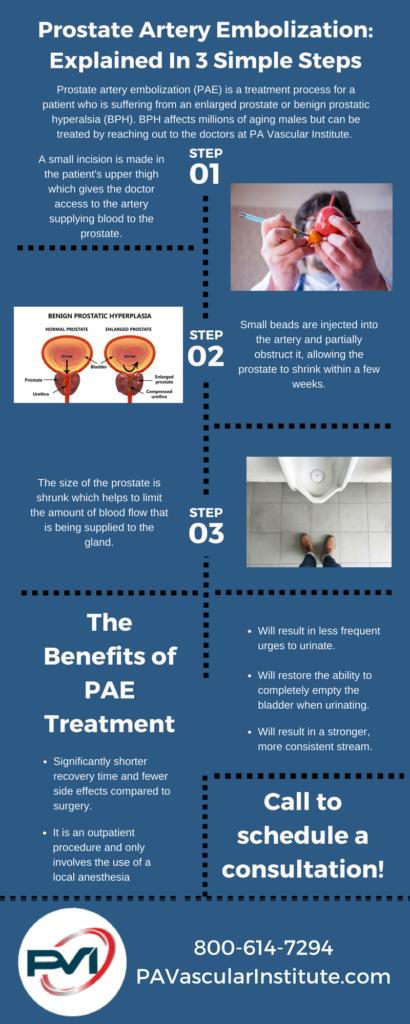Benign prostatic hyperplasia, also known as prostate gland enlargement or an enlarged prostate, is a common disease that affects a considerable percentage of aging males. It is known to cause significant discomfort, and urinary complications as the prostate blocks the regular flow of urine from the bladder.
There are a few different treatment options for men suffering from BPH. Medications have been shown to relieve symptoms in some men, although for many, medications are not as effective. Surgical options are available to patients, including a minimally-invasive procedure known as prostate artery embolization (PAE), which can provide symptom relief for many patients without the side effects associated with other surgeries.
In this article, we’ll discuss the symptoms associated with BPH as well as the benefits of PAE and why it may be your best treatment option for relief.
Symptoms of BPH
The symptoms of BPH vary from patient to patient and tend to worsen over time. These include:
- The need to urinate frequently
- Feeling a sudden urge to urinate
- Difficulty urinating
- A weak or inconsistent stream
- An inability to empty the bladder completely
While these symptoms can directly cause noticeable discomfort for men with BPH, there are also indirect side effects associated with the disease, including difficulties sleeping through the night as urges to urinate typically worsen at night.
How Prostate Artery Embolization Works
The process of prostate artery embolization effectively shrinks the size of the prostate by limiting the blood flow being supplied to the gland. Through a small incision in the upper thigh, your doctor will have access to the artery supplying blood to the prostate. By then injecting small beads into the artery, your doctor can obstruct the artery partially, leading the prostate to shrink in the following weeks.

The recovery time is significantly shorter when compared to more involved surgeries. As the prostate shrinks, many of the symptoms associated with BPH will begin to disappear. The patient should begin to feel less frequent and more predictable urges to urinate.
If you have experienced any of the above symptoms, we recommend you consult with a doctor right away before the situation worsens. As a team of experts in arterial and vascular diseases and treatments, Dr. Aaron Shiloh, Dr. Ryan Bonshock, Dr. Mike Watts, and Dr. Ed Pavillard can perform PAE for many patients and can help determine if the procedure is appropriate for you.
While many patients seeking spider vein treatments in Lehigh Valley and leg vein treatments in Philadelphia come to PA Vascular Institute, our practice handles much more. Speak with our team of professionals today to learn about our many vascular and arterial procedures and if PAE is right for you.
